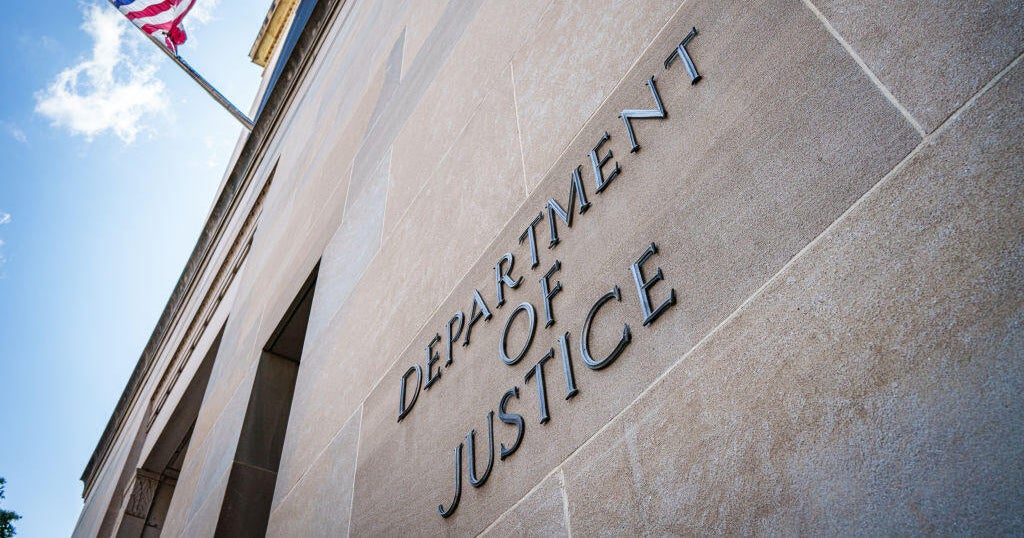Civil Rights Groups To Biden DOJ: Stop Relying On 100-Year-Old Racist Precedents In Court

A group of 13 civil rights organizations sent a letter to Attorney General Merrick Garland last week, calling on the Department of Justice to stop using a series of racist, century-old Supreme Court precedents in its court arguments.
The letter ― signed by the American Civil Liberties Union, the Hispanic Federation, the NAACP Legal Defense Fund and the Lawyers’ Committee for Civil Rights Under Law, among other groups ― targets a series of Supreme Court rulings from the early 20th century, known as the Insular Cases. These rulings denied the full benefits of citizenship to residents of America’s colonial territorial possessions, on the grounds that they were supposedly populated by “savage tribes” and “alien” and “uncivilized race[s]” who were “absolutely unfit to receive” them.
“We call on the Justice Department to help dismantle this egregious example of systemic racism by publicly condemning the Insular Cases and bringing an end to any reliance on them in future court filings,” the letter states.
Today, the Insular Cases still deprive the more than 3.5 million Americans living in America’s colonial territories of the right to vote in federal elections, equal application of the law and equal access to federal benefits and rights, despite those people’s claim to birthright citizenship as provided for in the 14th Amendment.
The civil rights groups want Garland and Solicitor General Elizabeth Prelogar to make it the government’s position that the courts should overturn the Insular Cases, much as the Department of Justice did in 2011 with regard to the Korematsu v. United States case that upheld the incarceration and removal of Japanese Americans during World War II. The Department of Justice did not respond to a request for comment.
Over the past decade, a series of cases have made their way through the courts seeking to challenge these 100-year-old precedents. So far, none has cracked the Insular Cases, although there is increasing pressure building against them.
In 2015, the D.C. Circuit Court of Appeals rejected a case brought by an American Samoan man who was denied the ability to work as a police officer in California because of his status as a non-citizen national ― a designation held solely by American Samoans. The court’s 3-0 ruling in Tuaua v. United States relied heavily on the Insular Cases, which the Obama administration’s Department of Justice urged them to do in an amicus brief filed with the court.
Spencer Platt via Getty Images
The Supreme Court declined to overturn the Insular Cases precedents in its 2020 ruling in Financial Oversight and Management Board for Puerto Rico v. Aurelius Investment, LLC, despite a request to do so by parties involved in the case. In the decision, written by Justice Stephen Breyer, that upheld the appointment of a financial stability board to oversee Puerto Rico’s debt, the court did acknowledge that the Insular Cases are “much-criticized.”
A decision that could be relevant to the Insular Cases is currently pending from the Supreme Court in the case of United States v. Vaello-Madero.
In November, the court heard arguments in Vaello-Madero challenging the denial of Supplemental Security Income benefits to Puerto Ricans based solely on whether they currently reside on the island. Two justices pressed the Department of Justice to express an opinion on the Insular Cases.
When Chief Justice John Roberts asked whether “the Insular Cases have anything to do with this litigation,” Deputy Solicitor General Curtis Gannon argued that the Vaello-Madero case did not implicate the Insular Cases because the plaintiffs had raised a challenge to the Fifth Amendment, not the 14th Amendment.
“What is the government’s position on the Insular Cases?” Justice Neil Gorsuch asked.
“The government’s position on the Insular Cases is that some of the reasoning and rhetoric there is obviously anathema, has been for decades, if not from the outset,” Gannon said ― but he added that the court need not challenge or extend the Insular Cases precedents in the Vaello-Madero case.
Still, direct challenges to the Insular Cases are currently winding their way toward the court, and will likely make it harder to keep avoiding a ruling on the racist precedents.
The case of Fitisemanu v. United States raises another challenge to the designation of American Samoans as non-citizen nationals despite the 14th Amendment’s grant of birthright citizenship. In a 2019 ruling, a district court judge found that the 14th Amendment applies to residents of U.S. territories and that the Insular Cases should be overturned. A federal appeals court, however, reversed the district court decision in June 2021 and then denied an en banc hearing in December with two judges dissenting. The next step in this case would be an appeal to the Supreme Court.
Before that happens, civil rights groups want the Biden administration’s DOJ to announce that it is now the government’s position that the precedents set in the Insular Cases should be overturned. This would match President Joe Biden’s pledge to eliminate systemic racism from governmental institutions and the law.
The letter from the civil rights groups states: “DOJ’s continued embrace of the Insular Cases cannot be reconciled with this administration’s pledge to affirmatively advance equity and racial justice.”
Checkout latest world news below links :
World News || Latest News || U.S. News
Source link



